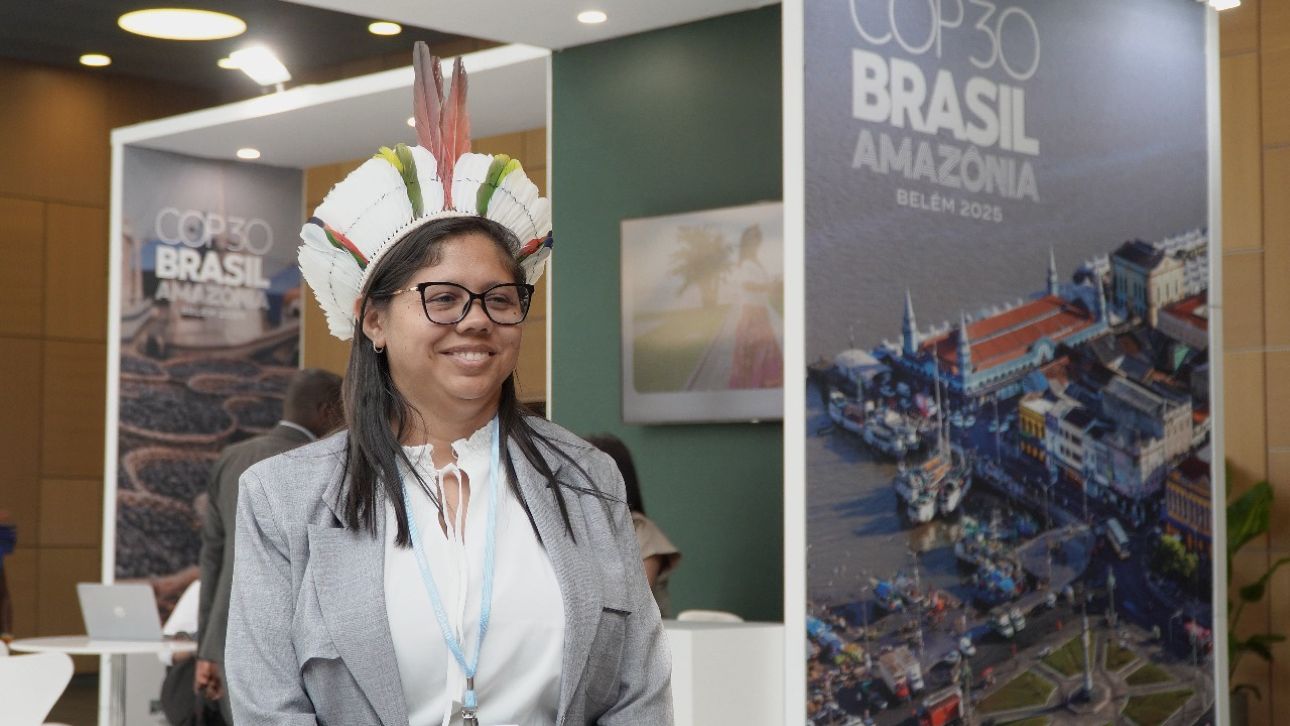In Bonn, students from the Kuntari Katu program follow the agenda on adaptation, mitigation, and financing
As part of their training to participate in international climate negotiations, indigenous people from the Kuntari Katu Program attend the annual UN conference in Germany as observers
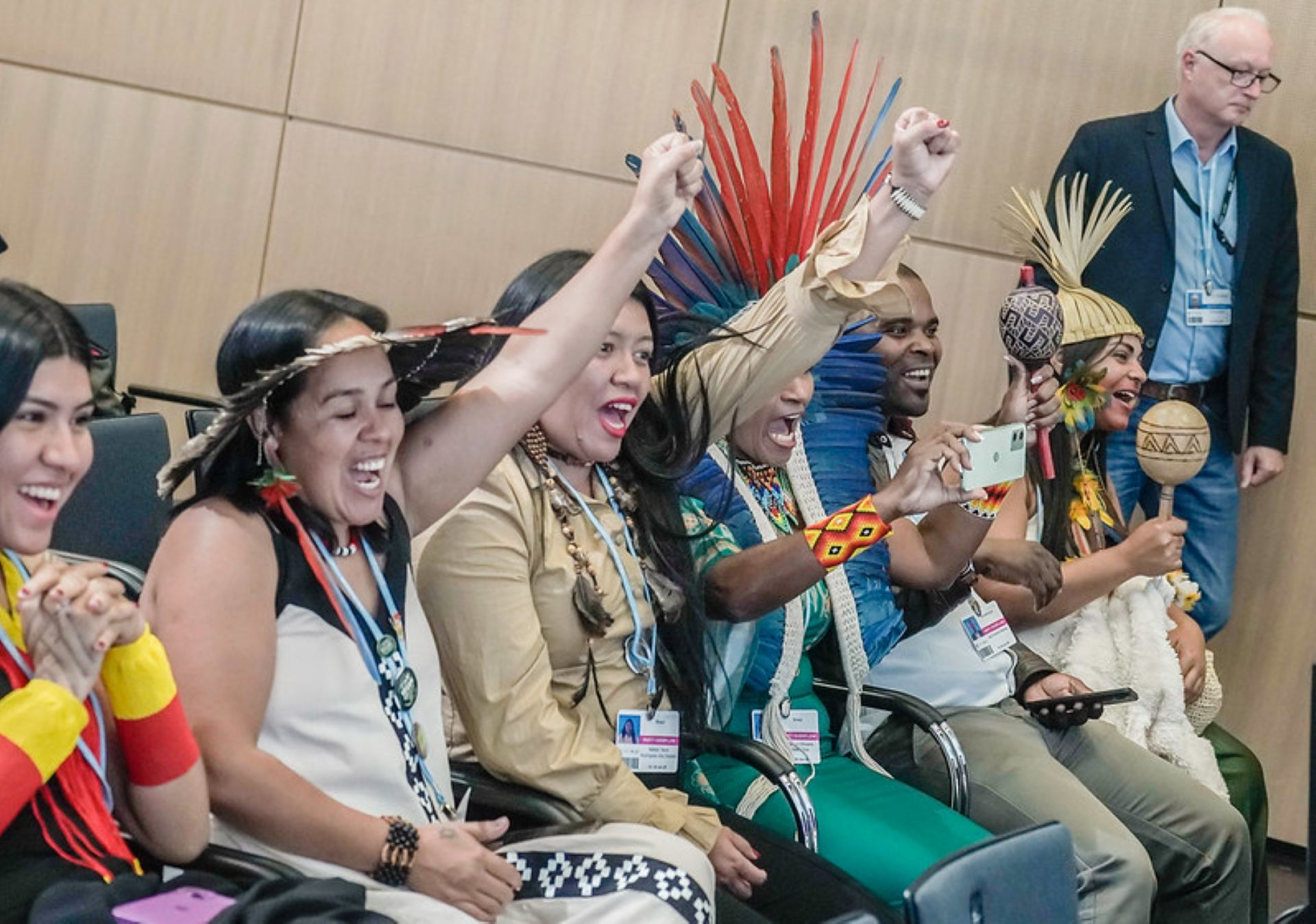
Twenty-three indigenous Brazilians from the Kuntari Katu Program are participating as observers in the Bonn Conference in Germany. There, they are discussing climate finance, adaptation, and mitigation. The event brings together the Subsidiary Bodies of the United Nations Framework Convention on Climate Change (UNFCCC) until June 26 to discuss agendas that will be prioritized at COP30.
The group has been trained by the Brazilian government to impact global climate decision-making spaces, drawing from the lived realities of their territories.
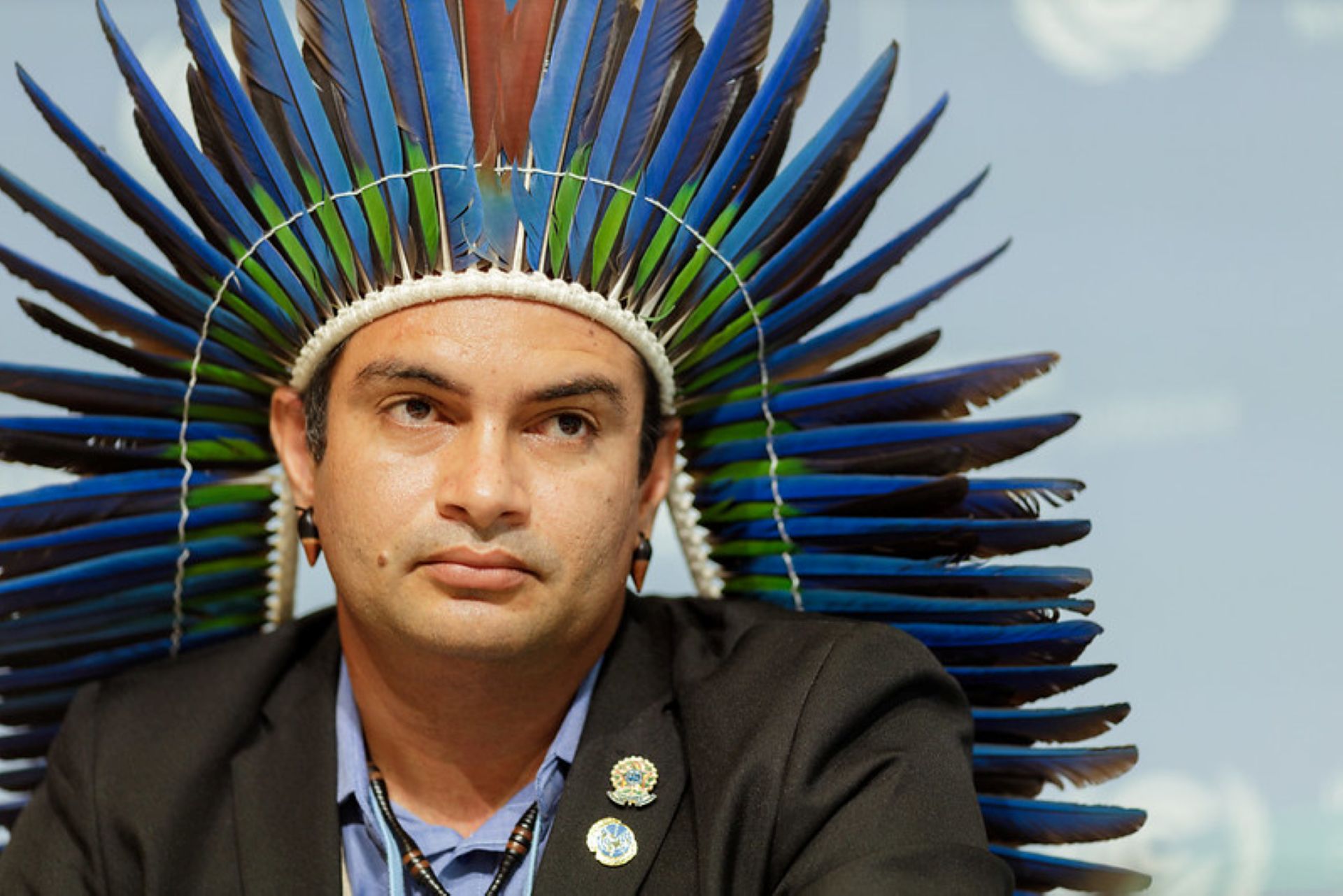
“We are slowly moving towards what we need, and the world needs to see this, especially developed countries. That the future is ancestral and depends on us, indigenous peoples, so that we can contribute to the maintenance of future generations for the future of the planet," said Luan Potiguara, an indigenous person from Monte-Mor, in the state of Paraíba, about the financing agenda under discussion at the UN Conference.
Maisangela Oliveira, who is from the Sateré-Mawé people in the state of Amazonas, emphasized that indigenous communities must be included in climate discussions because these decisions directly affect their way of life and their territories. The young leader said the program provides the tools necessary for Indigenous peoples to participate in and have their voices heard in global discussions.
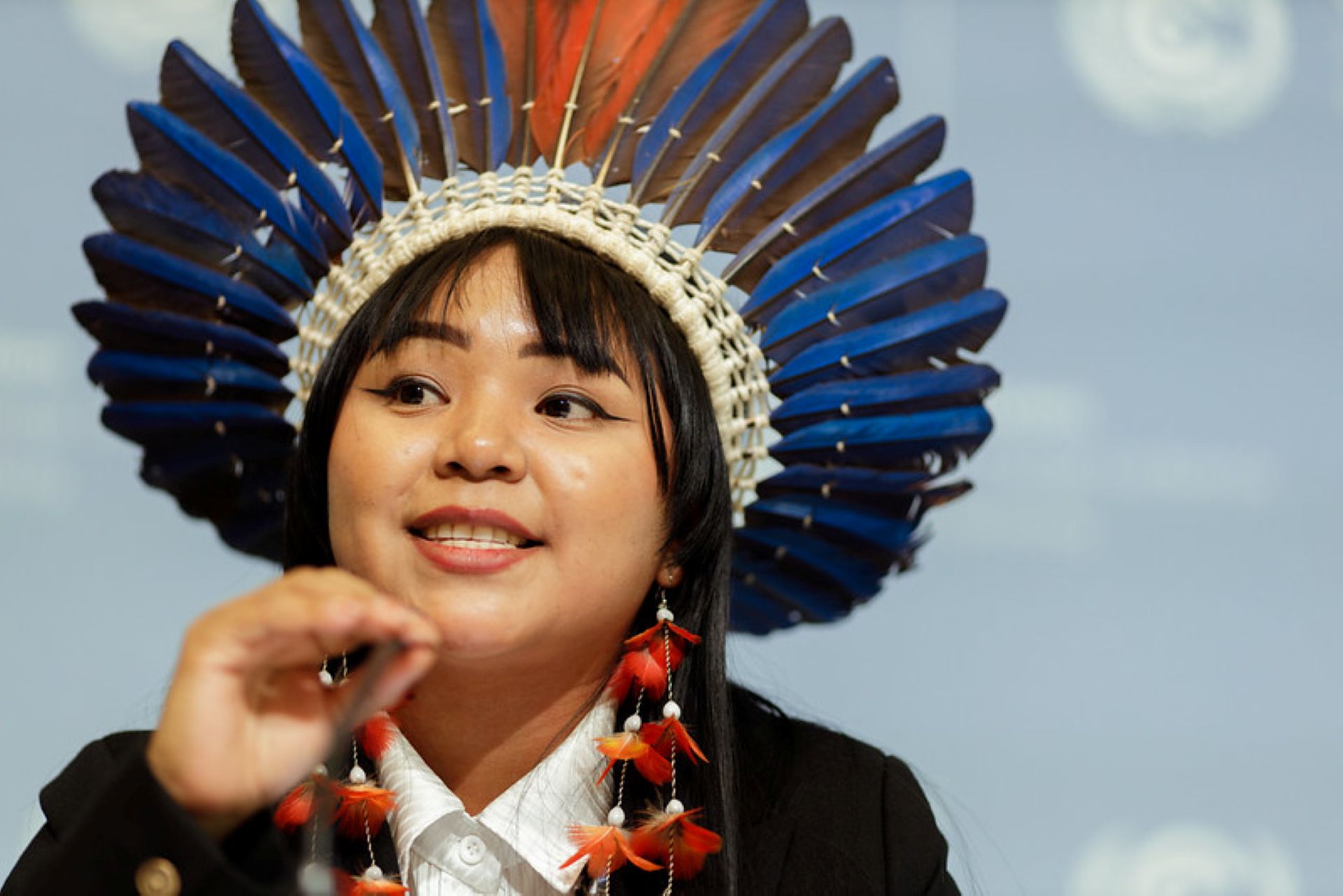
"But strength comes from within. We are fighting for the recognition of traditional knowledge in the climate adaptation process, as well as for a just transition that respects the free, prior, and informed consent of Indigenous peoples. We are fighting to protect sacred territories and secure direct financing proportional to our invaluable contribution to preserving the planet,” she said.
Eliel Ukan Patté is an indigenous person and student of International Relations who believes that both the Program's training and the experience of attending the UN Conference can positively impact the lives of indigenous people in their territories.
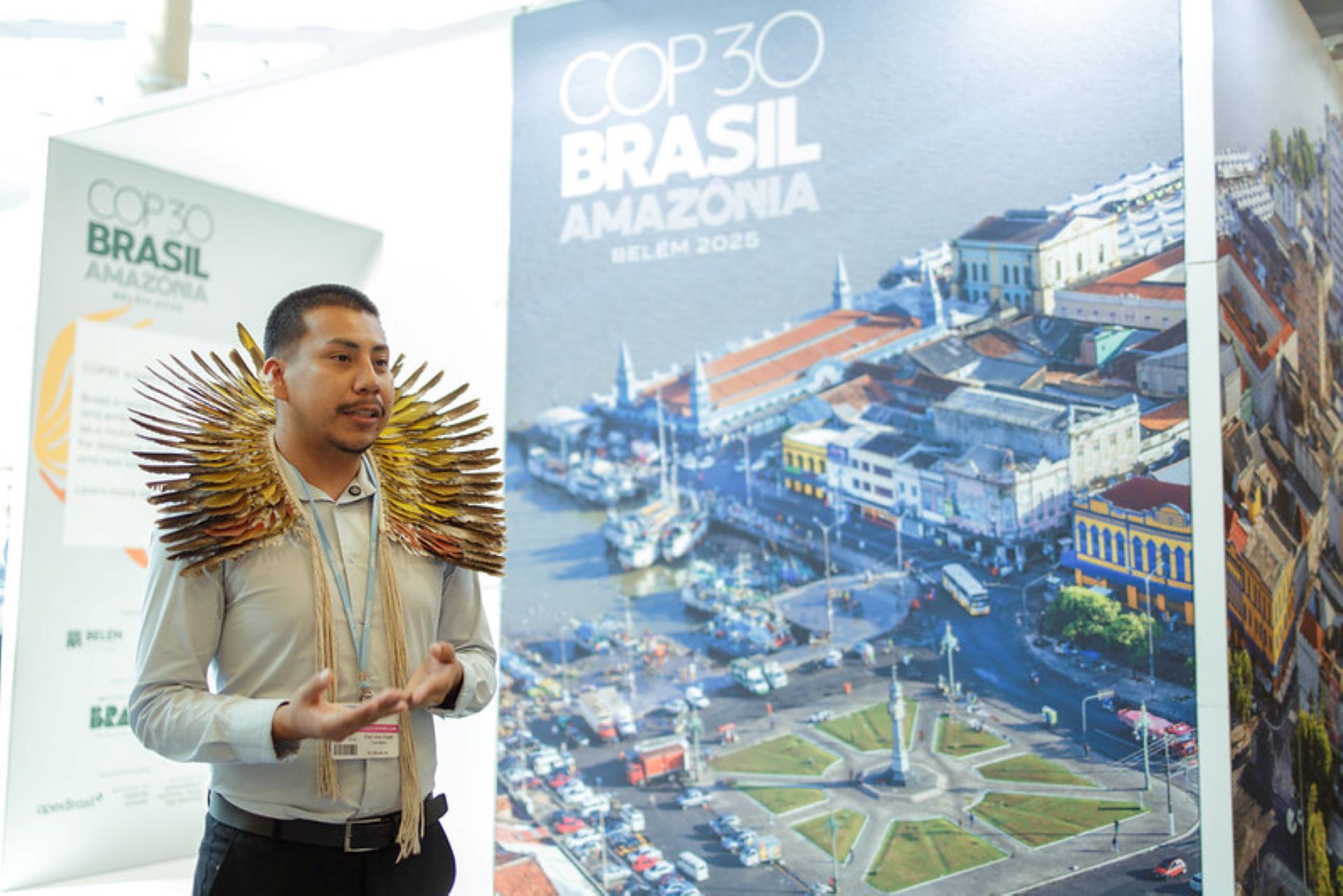
"Many young leaders are following each topic of the negotiations. The way we deal with, follow, and also share these issues will have a very positive impact on our territories, because we have this idea of bringing our voice and our bases into COP30. We are fighting for the demarcation of our territories because we are the ones who protect the forests, our lands, our rivers," said Eliel.
As a student at the Kuntari Katu Program, Ana Flávia Sampaio hopes that issues that are fundamental to Brasil's indigenous communities and that were discussed here will also be a focus at COP30, such as the demarcation of indigenous lands being understood as a climate adaptation measure.
“In fact, the most important thing for us right now is our demarcation through the mitigation process. We came here to advocate for this, to bring mitigation in the demarcation process of indigenous peoples to the negotiations,” she explained.
